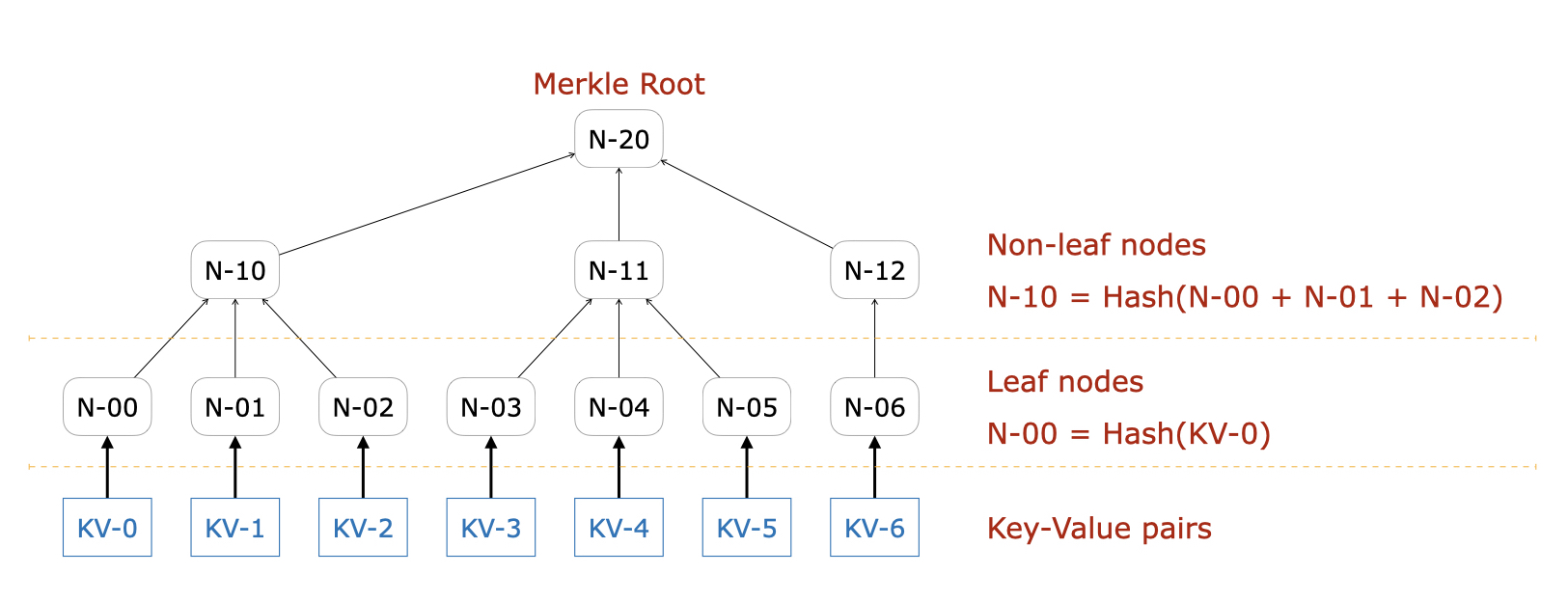State Machine
Juria blockchain can be represented as a state machine replicated on different computers.
Table of contents
Transaction
A transaction is a unique input with a digital signature from the end-user. Transactions are the inputs for the state machine which are processed in the same order on different computers.
State Merkle Tree
In Juria, the state machine records the current state as key-value pairs. It is essential to ensure that state machines on different computers reach the same state after processing a list of inputs.
One way to achieve this is to compute the cryptographic hash of all key-value pairs and compare the hash among different computers. However, the downside of this approach is that it recomputes the hash of the whole state even for a single value change.
Juria blockchain uses a Merkle tree to compute the hash of all key-value pairs efficiently.
 State Merkle tree with the branching factor:
State Merkle tree with the branching factor: 3
A Merkle tree or hash tree is a tree data structure in which each non-leaf node is the cryptographic hash of its child nodes. The leaf nodes are the cryptographic hash of the corresponding key-value pairs. The Merkle tree allows efficient and secure verification of the contents of large data structures.
Chaincode
A chaincode or smart contract is a program with a unique address and isolated state inside the state machine.
When the state machine processes an input, it executes the chaincode at the given address. During the execution, the chaincode changes its key-value pairs.